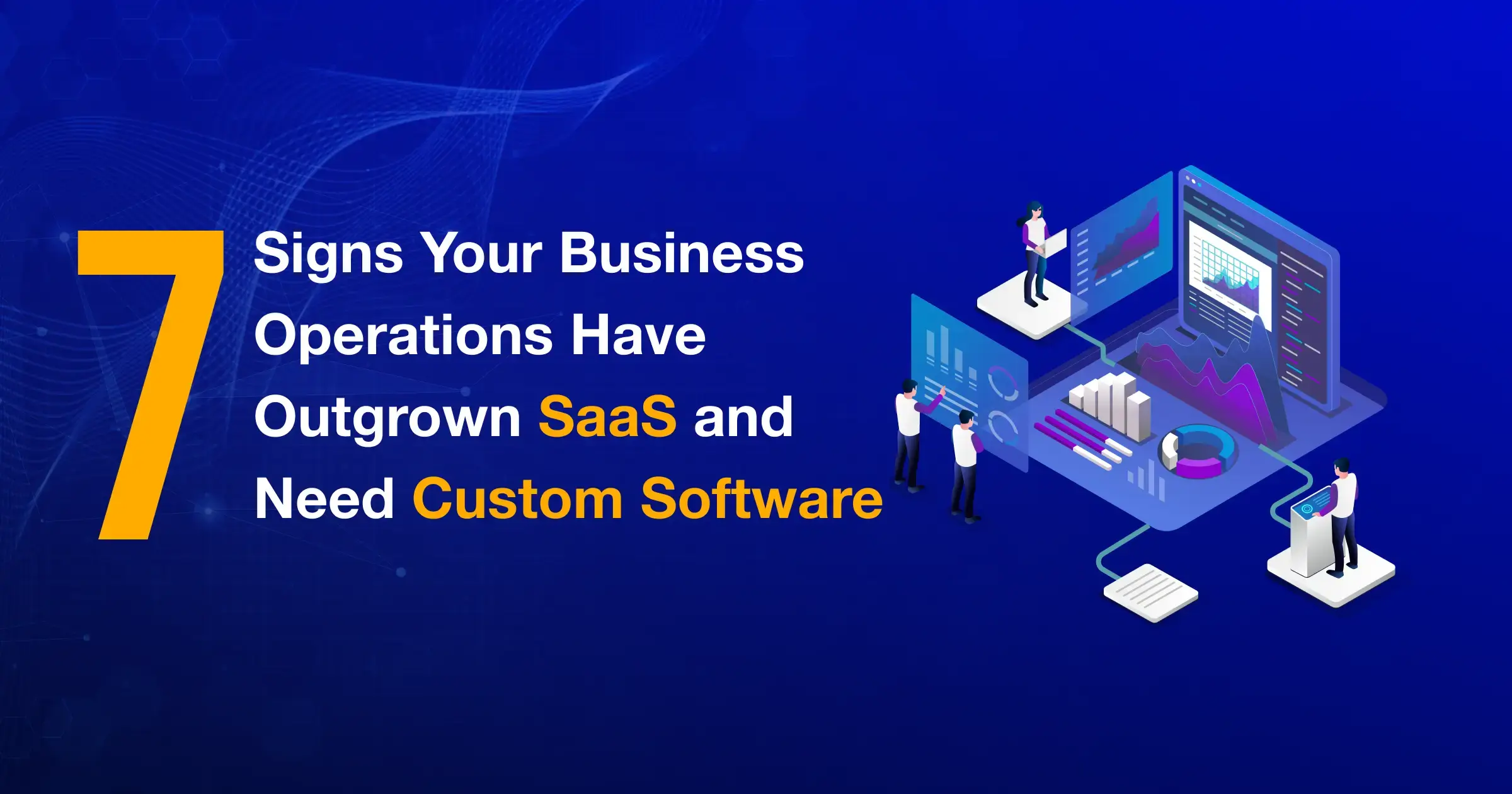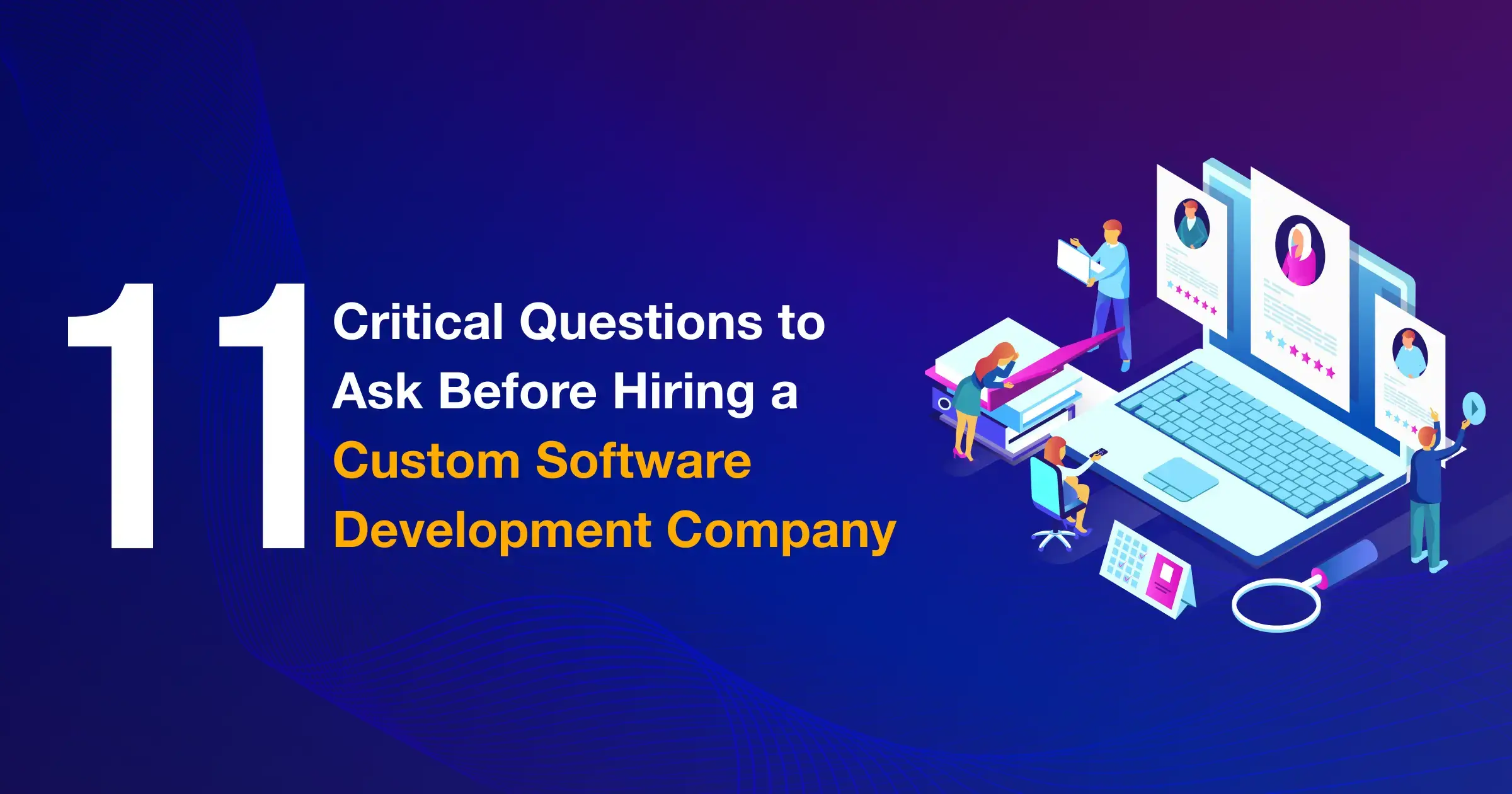Posted by Tech.us Category: GDPR Data Security
We are a team of technology experts who are passionate about what we do. We LOVE our customers. We LOVE technology. We LOVE helping you grow your business with technology.
Artificial Intelligence Services
Machine Learning Services
Generative Al Services
Robotic Process Automation
Natural Language Processing
Chatbot Development Services
Enterprise AI Services
Data Annotation Services
MLOps Services
IoT Services
Data Mining Services
Computer Vision Services
LLM Development Services
AI Agents
Agentic AI Development
Custom Software Development
Enterprise Software Solutions
Software Development Services
Website Development Services
Software Product Development Services
SaaS Development Services
Mobile App Development Services
Custom Mobile App Development
IOS App Development
Android App Development
Enterprise Mobile App Development
Hybrid App Development
Software Development Outsourcing
Dedicated Development Team
Staff Augmentation Services
IT Outsourcing Services
Data Analytics Services
Data Analytics Consulting Services
Business Intelligence Solutions
Software Modernization
Application Modernization Services
Legacy System Modernization
IT Security Solutions
Cyber Security Solutions
Cyber Security Managed Services
HIPAA Compliance Cyber Security
Cloud Application Development
Custom Web Application Development
Cloud Consulting Services
AWS Cloud Consulting Services
Enterprise Cloud Computing
Azure Cloud Migration Services

POPULAR POSTS
01
How To Improve Document Processing Accuracy Using Document AI
02
The Guide to Chatbot Development & What to Seek while Hiring a Company
03
11 Proven Benefits of AI Chatbots for Businesses in 2025
04
Understanding Natural Language Processing: The What? The How? and The Why?
05
What Digital Transformation Means for Businesses in 2026
Posted by Tech.us Category: GDPR Data Security
Data privacy is a branch of security that handles data consent, notice, and regulatory obligations. This tells you how data is collected or stored, whether or not it’s shared with third parties, and what sort of restrictions there are.
Privacy is defined as the claim of individuals, institutions, or groups to determine for themselves when and to what extent information about them is communicated to others. The data that is being collected are often volunteered, such as photos and videos.
This means that the control of information rests with the person himself.

Companies find utmost value in collecting, storing, sharing, and using data, and that’s why this is a valuable asset. Nowadays, tech companies have built their business frameworks based on billions and billions of data they’ve collected from their clients over the years — clients that include businesses like Facebook, Google, and Amazon.
Transparency over how data is collected is of utmost importance to establish trust with the brand and the audience, along with the expectation of privacy. Privacy is also the right of an individual to consent to or reject surveillance.
Data security doesn’t automatically mean data privacy, though. It means protecting your data from hackers that might use the collected information for malicious intentions.
On the other hand, data privacy refers to the manner in which data is being collected, stored, and used. Just because the data is secure, it doesn’t automatically mean that the company is collecting, sharing, and storing your data in an ethical, lawful manner. Data privacy should also be compliant with the existing privacy laws.
Some apps are known to download all of the data from your address book. Some are known to track your location whether or not you’ve agreed to turn on your location, and some sites are known to track whatever it is you type in (thus, collecting passwords and other sensitive information).
Data privacy gives your audience a sense of control over their data as it lets them know when and how their data is collected and used, and by whom and why.
Your company must have a sense on what proper data protection is as well as the procedures that are necessary for data collection, sharing, and usage.
In order to have an effective data privacy act, you must comply with these key elements:

The most comprehensive and groundbreaking data protection law was drafted and passed by the European Union called the General Data Protection Regulation (GDPR). Now that more people are entrusting their personal data and information with cloud services, Europe signaled its firm stance on data privacy.
“Everyone has the right to respect for his private and family life, his home and his correspondence.” This is the right to privacy part of the 1950 European Convention on Human Rights.
As technology progressed, the EU recognized the need for protection to fit the modern technological advancements. Europe’s data protection authority declared that the EU needed “a comprehensive approach on personal data protection”, and work began to update the 1995 directive. In 2018, all organizations were required to be compliant.
Another thing to note: the fines for violating the GDPR are extremely high.

Aside from avoiding fines, there are plenty of reasons why companies should comply with data privacy laws. Here are a few to consider:
With well-placed regulations, your business is protected from security threats. Data privacy regulations need to meet certain legal requirements. With these measures in place, you avoid the risk of security threats and your business won’t suffer a loss of revenue.
Data breaches will lead to the unlawful attainment of your customers’ valuable personal data and information. A hacker will be able to use all that information with malicious intentions such as fraud, identity theft, and unauthorized credit card use, amongst others. How will your customers be able to trust you if they can’t trust their private information with you?
If you were not able to protect your customers’ personal information, this lowers their trust in you and, thus, your credibility as well. When they give out their personal information to you, they are entrusting you to keep it protected for them. As soon as this aspect is compromised, the value and reputation of your brand goes way down.
When you have utmost compliance with data privacy laws, this gives your customers assurance that you’re taking the matter of their private information very seriously. Studies show that a lot of people are suspicious primarily about how their data is being collected and used by companies, and that they feel that they have little control over their data after having stored it. By being compliant with the law, this gives them the sense that you care about their information just as much as they do.
Most organizations have a code of ethics and follow certain ethical practices. Those who don’t follow them shouldn’t be running a business. One of the policies in the code of ethics states that all information that is private and confidential must only be used for business purposes.

This is not an easy step to take, and it might take a while to ensure that your business is complying with the data privacy law. Here are a few steps to help you get started.
The reason why you’re having difficulty being compliant with the law could be due to a lack of knowledge. It’s important to hire experts who know what they’re doing. They will be in charge of developing legally compliant practices and policies. With someone trustworthy delegated on this matter, you can rest assured that you’re always complying with regulations.
Meet with your subject matter expert to discuss what you want to happen in regards to your organization’s nature and the best approach to the compliance strategy. Make sure that all measures are done to keep personal data private.
Now that you have a strategy in place, it’s time to establish the policies and procedures of that strategy. Make sure that these have effective, competent safeguards in place to protect data and stop unwanted and unauthorized access to them.
Partner with your subject matter expert to constantly monitor the safeguards and ensure that they are in place and working properly. Because technology is constantly evolving, you want to make sure that your data security is up to date too.
Your company has to have a system of tracking all private information to make it easy to locate and protect if necessary, thus the need for identifying and tagging them accordingly should be established. Of course, this needs to be compliant with the recommended legal standards.
Even companies with the strictest compliance with data security and privacy laws aren’t excluded from unplanned, deadly cyber-attacks. Make sure a contingency plan is in place when this happens, so your customers feel assured despite the situation. It’s harder to remain calm when you see the CEO panicking, too.
Most people don’t care too much about reading the privacy agreement whenever they download, install, update, etc. something over the internet. That’s why they trust you and your organization to make sure that the data they entrust to you is not collected or used unlawfully.
Plenty of crimes have been committed with the use of fake identities, fraudulent transactions, and the like, all because of security and data breach.
It is up to you to uphold ethics and make sure that your customers are right in trusting you. In accordance with that, your business will have a good reputation, your customers are happy, and you avoid big fines.

Artificial Intelligence and the Four Stages of...

Stop slipping. Start shipping. How to ship your...
Get Free Tips
NEWSLETTER
Get Free Tips
Submit to our newsletter to receive exclusive stories delivered to vou inbox!
Thanks for submitting the form.
RECENT POSTS

7 Signs Your Business Operations Have Outgrown SaaS and Need Custom...

What Digital Transformation Means for Businesses in 2026

When Does a Mobile App Become a Competitive Advantage for Businesses?

How to Choose the Right AI Development Partner for Enterprise AI Systems

11 Critical Questions to Ask Before Hiring a Custom Software Development...
We are a team of technology experts who are passionate about what we do. We LOVE our customers. We LOVE technology. We LOVE helping you grow your business with technology.
Our Services
Talk to US